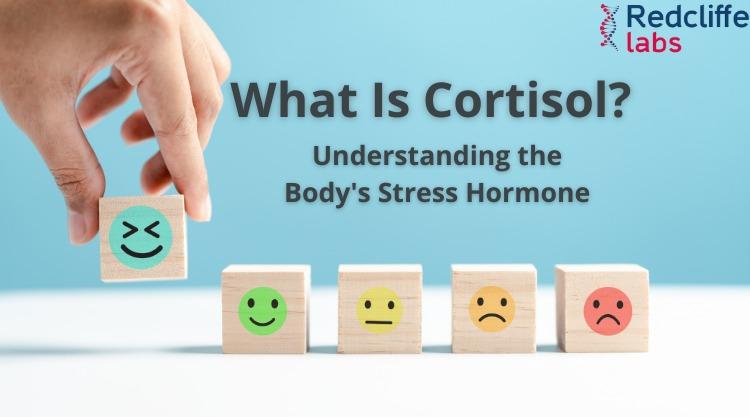How Much Protein Does the Human Body Need Per Day

Medically Reviewed By
Dr. Ragiinii Sharma
Written By Komal Daryani
on May 23, 2024
Last Edit Made By Komal Daryani
on Jul 19, 2025

Did you know that 73% of Indians have shown a protein deficiency, while more than 90% of people still have no clue about the human body's daily optimum protein requirement or the right protein sources?
Scary yet alarming, right? Of course, you must be quite curious to know how much protein you need to consume in a day and what food sources you should consider including in your diet, so don't worry—you're in the right place.
Why do we need protein?
Proteins are considered the building blocks of life. They help your body repair cells, regenerate new cells, and build muscle mass. Protein also tends to make up half of our dry body weight. Enzymes, a protein type, regulate all bodily reactions. So consider protein your best friend and include it in your diet in feasible quantities.
How much protein should I eat daily?
Well… It depends! Your body weight, age, activity levels, and much more affect your protein intake needs. However, for Average sedentary adults, the recommended intake is about 0.8 grams per kg of their Body weight or 10 to 35% of their total calorie intake. It's not as simple as that, though. Here are the factors other than body weight that affect your daily protein intake needs:
- Age
As you age, you start losing muscle mass. After reaching the age around 40-50, you start rapidly losing muscle mass due to a condition known as Sarcopenia. At this age, your protein needs to increase to 1-1.2 g per kg of body weight.
- Activity levels
People who have an active lifestyle and exercise daily need around 1.1-1.5 g of protein per kg of body weight, while bodybuilders and athletes may require as much as 1.2-1.7 g per kg every day.
- Gender
Males and females have different requirements for daily protein intake. Men generally need 0.84 g per kg of body weight per day, while women need about 0.75 g per kg.
Pregnant women tend to require much more protein to aid in the growth of the baby's organs and tissues. On average, they require around 1g of protein per kg of body weight.
Also Read: Paneer Protein Per 100g: Evaluating Protein Content for Health
How do I calculate my protein intake?
Several methods can be used to calculate your required protein intake levels, two of which are mentioned here:
- Body weight method: Measure and convert your body weight into pounds. Then, divide your body weight by 20 and multiply it by 7. This method is supported by the fact that an average human needs a little more than 7 grams per pound of body weight protein daily.
- Calorie intake method: 1 gram of protein gives 4 kcal. It is medically advised that a person can consume between 10 to 35% of their daily total calorie intake from proteins.
Note: Both methods provide an approximate idea of the required protein intake. However, each individual's protein needs are unique and may, therefore, vary.
How much protein per day is needed to build muscle?
Individuals engaged in activities like weightlifting and bodybuilding or people looking to add muscle mass require significant amounts of protein. Weightlifters and strength athletes are generally recommended to consume about 1.4 to 2 g per kg of body weight. This amount is optimal if they want to build muscle or have an extremely active lifestyle.
How much protein per day is needed to lose weight?
Research has shown that high protein intake positively affects weight loss while losing fats and gaining lean muscle mass. An intake between 1.6 to 2.2 g per kg of body weight can be quite helpful if you want to lose weight. Protein also keeps you full for longer periods, so it is an ideal choice for weight loss.
What are some good food sources of protein?
It doesn't matter if you're a considerate vegan, a vegetarian, or an indulgent omnivore; we've got you all covered! Let's dive into the various plant- and animal-based foods to help you meet your daily protein needs.
Plant-based protein sources
- Lentils: Apart from 18g of protein per cooked 200g, Lentils are rich in antioxidants and minerals like folate, manganese, iron, etc.
- Oats: 40g of oats contain about 5g of protein and magnesium, zinc, phosphorus, and folate.
- Nuts: Every ounce(28g) of nuts contains about 5-7g of protein, though it depends on the variety of nuts. They are also a good source of healthy fats and minerals like calcium, iron, magnesium, etc.
- Chia seeds: The new buzz around chia seeds is justified. These are super healthy and provide 5g of protein per ounce(28g) along with omega-3 fatty acids, antioxidants, etc.
- Mycoprotein: Never heard of it? Don't worry, we've got you! Mycoprotein is a type of protein that is derived from fungus. This includes mushrooms and is used to make meat-imitating products for Vegans and vegetarians. These products usually contain around 15-16g of protein per 100g serving.
Animal-based protein sources
- Eggs: Eggs are a whole source of protein. A single egg contains 4.7 to 7.5 grams of protein and other nutrients like choline, lutein, and zeaxanthin.
- Seafood: Various types of seafood, such as salmon, shrimp, shellfish, tuna, etc., contain high amounts of protein, around 17-23 g per 100 g serving. They are also a rich source of omega-3 fatty acids and Vitamin D.
- Milk: One cup of milk(244ml) contains about 8 g of protein and calcium, essential for strong teeth and bones. It also contains vitamins A, B12, K2, and magnesium.
- Chicken breast is one of the best sources of high-protein foods. 100g of chicken breast contains around 36g of protein, which is higher than most other protein sources.
- Cottage Cheese: Cottage cheese, also known as paneer, is a rich source of protein. A 100-g serving contains about 14g of protein, along with minerals like calcium, folate, and sodium.
What are the signs and side effects of too much protein?
Are you having too much protein? Excessive consumption of protein may pose several health risks and problems. Here are some of the signs & side effects associated with the excessive intake of protein:
- Diarrhea
- Indigestion problems
- Increased fatigue
- Nausea
- Kidney issues
What are the signs and symptoms of protein deficiency?
If you feel your diet falls quite short of the recommended protein intake and wonder if you have a protein deficiency, you should look out for these signs and symptoms:
- Nail, Hair, and skin issues
- Swelling (Edema)
- Mood Changes
- Slow healing wounds
- Loss of muscle mass
- Increased vulnerability to infections
The Key Takeaway
Protein is essential for the human body, and an appropriate protein intake is necessary to maintain a balanced and healthy lifestyle. It is also important to be aware of and actively monitor the protein levels in our body to prevent further complications from excessive protein intake or protein deficiency. When did you last have a Total Protein Test? If you need help remembering, book your Total Protein Test with Healthy India's trusted lab, Redcliffe Labs!
Leave a comment
1 Comments
Chandrakant Shrivas
Aug 25, 2024 at 3:42 PM.
मेरा वजन 85 kg है मेरी लंबाई 5 फुट 6 इंच है मुझे कितनी मात्रा में प्रोटीन लेना चाहिए और वह किस चीज से मिलेगा
MyHealth Team
Aug 27, 2024 at 2:28 PM.
आपको 85 किग्रा वजन के लिए रोज़ 102-127 ग्राम प्रोटीन चाहिए। प्रोटीन के स्रोत हैं दालें, बीन्स, अंडे, मछली, चिकन, और नट्स।



